Opioid addiction is one of the most pressing public health crises affecting communities across North Florida and South Georgia. From prescription painkillers to heroin and fentanyl, opioids have led to a sharp rise in overdose deaths and long-term substance use disorders. Many individuals struggling with opioid addiction require professional treatment to overcome their dependence and reclaim their lives. Without intervention, opioid use disorder can lead to devastating health, legal, and financial consequences.
For those in Lake City, Valdosta, and surrounding areas, addiction treatment centers provide essential care, including medication-assisted treatment (MAT), therapy, and support groups. These programs address both the physical and psychological aspects of opioid addiction, helping individuals break free from dependence and build a foundation for lasting sobriety.
Expanding access to opioid treatment is critical in the fight against this epidemic. Many individuals do not seek help due to stigma, lack of awareness, or financial barriers. However, early intervention and comprehensive care significantly improve the chances of long-term recovery. By connecting people with the right resources, communities in North Florida and South Georgia can work together to combat opioid addiction and support those in need.
Understanding Opioid Addiction
Opioids are powerful substances that alter the brain’s chemistry, leading to physical dependence and, in many cases, addiction. Prescription opioids, such as oxycodone and hydrocodone, were once widely prescribed for pain management, leading to widespread misuse. Over time, many individuals who became dependent on prescription opioids transitioned to illicit substances like heroin and fentanyl, which are cheaper and more accessible.
The effects of opioid addiction extend beyond the individual. Families suffer emotional and financial strain, while communities face increased crime, homelessness, and healthcare burdens. The cycle of addiction often leads to repeated relapses, making professional treatment essential for recovery.
The Role of Medication-Assisted Treatment (MAT)
One of the most effective ways to treat opioid addiction is through medication-assisted treatment (MAT). MAT combines FDA-approved medications with counseling and behavioral therapies to help individuals manage withdrawal symptoms and cravings while addressing the underlying causes of addiction.
Common medications used in MAT include:
- Buprenorphine (Suboxone, Subutex): Reduces withdrawal symptoms and cravings without producing the intense high associated with opioids.
- Methadone: A long-acting opioid that prevents withdrawal symptoms and stabilizes brain chemistry, often used in structured clinical settings.
- Naltrexone (Vivitrol): Blocks the effects of opioids and reduces cravings but does not produce dependence.
These medications allow individuals to function normally without experiencing the intense cravings and withdrawal symptoms that often lead to relapse. MAT has been proven to reduce opioid use, prevent overdose deaths, and improve treatment retention rates.
Comprehensive Treatment Approaches
While MAT is a crucial tool in opioid addiction recovery, it is most effective when combined with counseling and therapy. Behavioral health support helps individuals develop coping skills, address trauma, and rebuild their lives without relying on substances.
Individual Therapy
One-on-one counseling allows individuals to work through personal challenges related to addiction. Therapists use evidence-based approaches such as cognitive-behavioral therapy (CBT) and dialectical behavior therapy (DBT) to help individuals recognize harmful thought patterns, manage stress, and develop healthier habits.
Group Therapy and Support Networks
Peer support plays a vital role in addiction recovery. Group therapy sessions provide a safe space for individuals to share experiences, receive encouragement, and build relationships with others who understand their struggles. Many treatment centers also encourage participation in community-based support groups such as Narcotics Anonymous (NA), which offers ongoing accountability and guidance.
Family Involvement and Counseling
Addiction affects entire families, not just the individual struggling with substance use. Family counseling helps loved ones understand addiction, set healthy boundaries, and provide meaningful support during the recovery process. Many rehab centers offer family therapy sessions to strengthen relationships and improve communication.
Rehab Centers in Lake City and Valdosta
Residents of North Florida and South Georgia have access to quality addiction treatment services through rehab centers in Lake City and Valdosta. These facilities provide a range of treatment options, including detox, inpatient rehabilitation, outpatient programs, and aftercare support.
Detox Programs
The first step in opioid addiction treatment is detoxification, during which the body eliminates opioids from its system. Detox can be challenging due to withdrawal symptoms, which may include nausea, muscle pain, anxiety, and intense cravings. Medically supervised detox programs help individuals manage these symptoms safely, reducing the risk of complications and relapse.
Inpatient Rehab
For those with severe addiction, inpatient rehab provides 24/7 care in a structured environment. Residential treatment allows individuals to focus entirely on recovery without the distractions and triggers of daily life. Programs typically include therapy, medication management, and life skills training to help individuals transition back into society.
Outpatient Treatment
Individuals who cannot commit to full-time residential care may benefit from outpatient programs, which offer flexibility while still providing essential support. Outpatient treatment includes therapy, MAT, and relapse prevention strategies, allowing patients to maintain work, school, and family responsibilities while receiving care.
Aftercare and Long-Term Support
Recovery does not end when a treatment program is completed. Aftercare services, such as sober living homes, alumni programs, and continued therapy, help individuals maintain sobriety in the long term. Many treatment centers in Lake City and Valdosta provide relapse prevention resources and ongoing counseling to support individuals as they navigate life after rehab.
Community Outreach and Early Intervention
Expanding access to opioid addiction treatment requires more than just rehab centers—it involves community outreach, education, and early intervention. Many individuals struggling with opioid use disorder do not seek help until their addiction has progressed significantly. Community programs play a crucial role in identifying at-risk individuals and connecting them with treatment before their condition worsens.
Local health departments, nonprofit organizations, and harm reduction programs provide vital resources, such as:
- Naloxone (Narcan) Distribution: Naloxone is a life-saving medication that reverses opioid overdoses. Community programs distribute Narcan kits and train individuals on how to administer the medication in emergency situations.
- Syringe Exchange Programs: While controversial, harm reduction initiatives like syringe exchanges help prevent the spread of infectious diseases and connect individuals to treatment services.
- Education and Awareness Campaigns: Public education efforts help reduce stigma and encourage individuals to seek help by promoting the benefits of treatment and recovery.
Breaking the Stigma Around Opioid Addiction
One of the biggest barriers to seeking treatment is the stigma surrounding addiction. Many people view opioid addiction as a moral failing rather than a medical condition. This misconception prevents individuals from reaching out for help due to fear of judgment or shame.
Raising awareness about addiction as a disease—rather than a personal weakness—encourages more people to seek treatment. Healthcare professionals, community leaders, and policymakers must work together to create supportive environments where individuals feel safe asking for help.
A Future of Hope and Healing
Opioid addiction has devastated countless lives, but recovery is possible with the right treatment and support. In Lake City, Valdosta, and surrounding areas, rehab centers provide life-changing services that help individuals break free from addiction and build brighter futures. Medication-assisted treatment, counseling, and peer support create a comprehensive approach to recovery, giving individuals the tools they need to maintain sobriety.
Expanding treatment access and community outreach efforts is essential for addressing the opioid crisis. By prioritizing early intervention and removing barriers to care, North Florida and South Georgia can work toward reducing addiction rates and saving lives.
If you or a loved one is struggling with opioid addiction, now is the time to seek help. Professional treatment can make all the difference, offering a path to lasting recovery and a future filled with hope.



